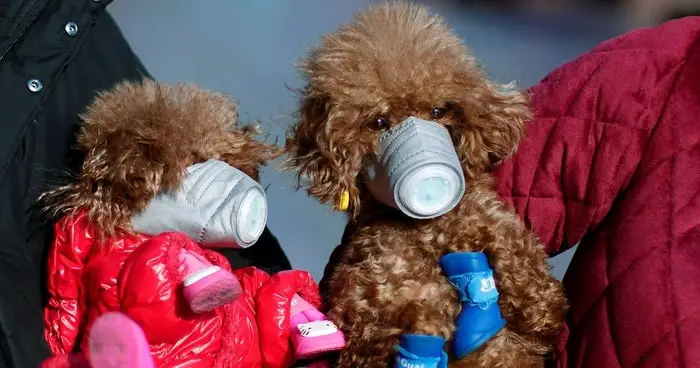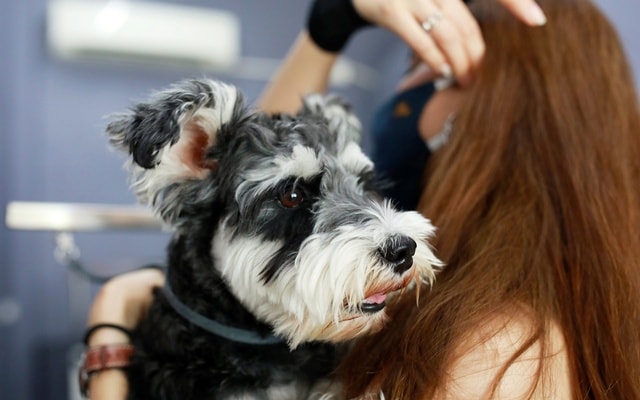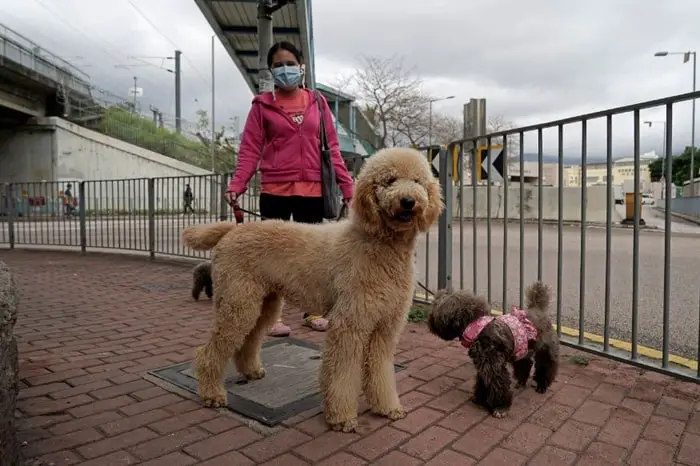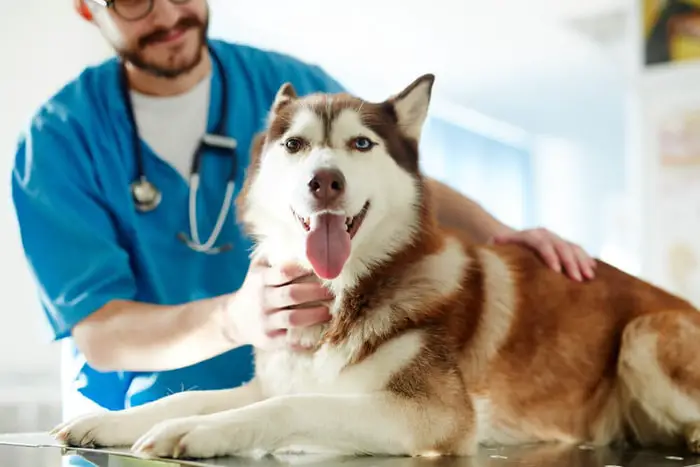Coronavirus in Dogs is a cause of acute gastroenteritis in most Canidae. It is also known as CCoV, is highly contagious and capable of spreading rapidly among susceptible dogs, especially puppies. The disease has been associated with outbreaks of diarrhea in young dogs. Dogs of all ages are sensitive, but the clinical disease is more likely to become apparent in young dogs less than six weeks of age. The overall incidence of the disease is considered to be less. Furthermore, the severity of clinical signs is limited to mild, transient enteritis.
Is there any Relation with Covid-19 and Coronavirus in Dogs
The disease (CCoV) is not the same virus as SARS-CoV-2, which causes the novel Coronavirus (COVID-19). It does not affect people. CCoV causes acute gastroenteritis in dogs, as opposed to respiratory disease. Dogs can contract coronaviruses, but the mostly canine respiratory Coronavirus. COVID-19, the novel Coronavirus is not believed to be a health threat to your dogs. Furthermore, your dogs can test positive for the virus.

The causal agent of the Canine Coronavirus
Canine Coronavirus, an enveloped RNA virus, is a member of the Coronaviridae. Several coronavirus strains have been isolated from outbreaks of diarrheal disease in dogs. Coronavirus is relatively resistant and can remain infectious for long periods during winter months. Most commercial detergents and disinfectants can inactivate Coronavirus in dogs.

Transmission and Pathology of Coronavirus in Dogs
Coronavirus passed through the feces of infected dogs for two weeks or longer, and fecal contamination of the environment is the primary source for its transmission. The Coronavirus is transmitted when a dog ingests feces from another dog that has the virus. Neonatal puppies are more severely affected than are puppies of weaning age and adult dogs.

Dogs, cats, humans, cattle, pigs, horses, chickens, rats, and mice of any breed, age, and sex are affected worldwide. Different members of the coronavirus family have a preference for specific species; thus, a Coronavirus infection in the dog is highly unlikely to be contagious to a person or other animals. Canine Coronavirus is a highly infectious virus transmitted in kennels and dog shows.
Clinical signs of Canine Coronavirus (CCoV)
Feces are described as yellowish in color and presence of bad odorous and may have blood. Only in the most critical cases will dehydration and electrolyte imbalance follow. Infected dogs will occasionally develop in vomiting. However, the clinical signs associated with Canine coronavirus infection are especially difficult to distinguish from other causes of infectious enteritis, e.g., canine parvovirus, canine rotavirus.

Clinical signs can vary seriously, but commonly include diarrhea, vomiting, mucus or blood in feces, depression, occasional fever, and anorexia. Puppies can die from excessive dehydration and enteritis. Adult dogs have less severe or no symptoms. Most affected dogs recover naturally after 8 to 10 days, but the clinical course may be prolonged in secondary complications.
Diagnosis of Coronavirus in Dogs
A clinical diagnosis of Coronavirus enteritis is based on a history of acute onset of diarrhea in young dogs, especially puppies. Confirmation of Coronavirus infection in dogs is based on the isolation of the virus in fresh feces. Such testing is limited to experienced laboratories capable of electron microscopy. In histopathology, small intestinal lesions of Coronavirus are classically described as atrophy and fusion of intestinal villi depending on the intestinal crypt.

Virus isolation is severe, as Coronavirus does not grow well on tissue or cell culture systems. A serum virus neutralization and ELISA tests have been developed to detect coronavirus antigen (feces) and antibody (blood). Positive Canine coronavirus serum titers of affected dogs may help in differentiating CCV enteritis from other viral infections. RT-PCR is the most authentic and reliable means of confirmatory diagnosis of coronavirus.
Differential diagnosis of Coronavirus in dogs
Coronavirus infection can mimic several causes of mild enteritis of puppies associated with soft stool, such as intestinal parasites, dietary indiscretions, and food intolerance. Canine rotavirus is a reasonable differential diagnosis, although confirmation of infection is difficult to establish. Any puppy with acute onset of diarrhea should be evaluated for canine parvovirus infection. Affected puppies should be examined for the presence of intussusceptions.

Treatment and Prognosis of Coronavirus in Dogs
The majority of dogs that are not severely affected and recover without treatment. Animals that do develop severe symptoms of infection need supportive treatment such as to maintain fluid and electrolyte balance. Supportive therapy is the mainstay of treatment. CCV infection inconsistently causes clinical disease. When present, the disease is typically mild and self-limiting.

In the worst cases, electrolyte and fluid replacement are indicated to counter the effects of fluid loss and dehydration, acidosis, and rarely shock. In most cases, therapeutic intervention is not required. Good nursing care is undoubtedly essential, and broad-spectrum antibiotics can be used to treat secondary bacterial infections. The prognosis for recovery without treatment is excellent.
Prevention of Canine Coronavirus (CCoV)
Infected dogs should be kept away from your healthy dogs. Sanitation should be maintained by keeping the environment free of feces and cleaning the area with appropriate disinfectants. Inactivated and attenuated Coronavirus vaccines are available but not widely recommended because the disease is not widespread enough to justify routine vaccination of all dogs.

Parenterally administered vaccines do not eliminate the replication of Coronavirus in the intestine after a challenge. Moreover, the value of vaccinating adult animals is limited because natural resistance to the disease occurs with age. Vaccination is beneficial, especially for show dogs and kennel dogs that are at high risk for contracting the virus.
Final Advice on Coronavirus in Dogs
Coronaviral disease in dogs is a common intestinal disease in dogs and other animals. The strain that affects dogs cannot transmit to humans. The COVID-19 strain is different from CCoV. So You need not worried about the CCoV in your dogs. Moreover, vaccines against the CCoV also available, and that is very effective. You must be cautious about the transmission of the disease to other animals.
